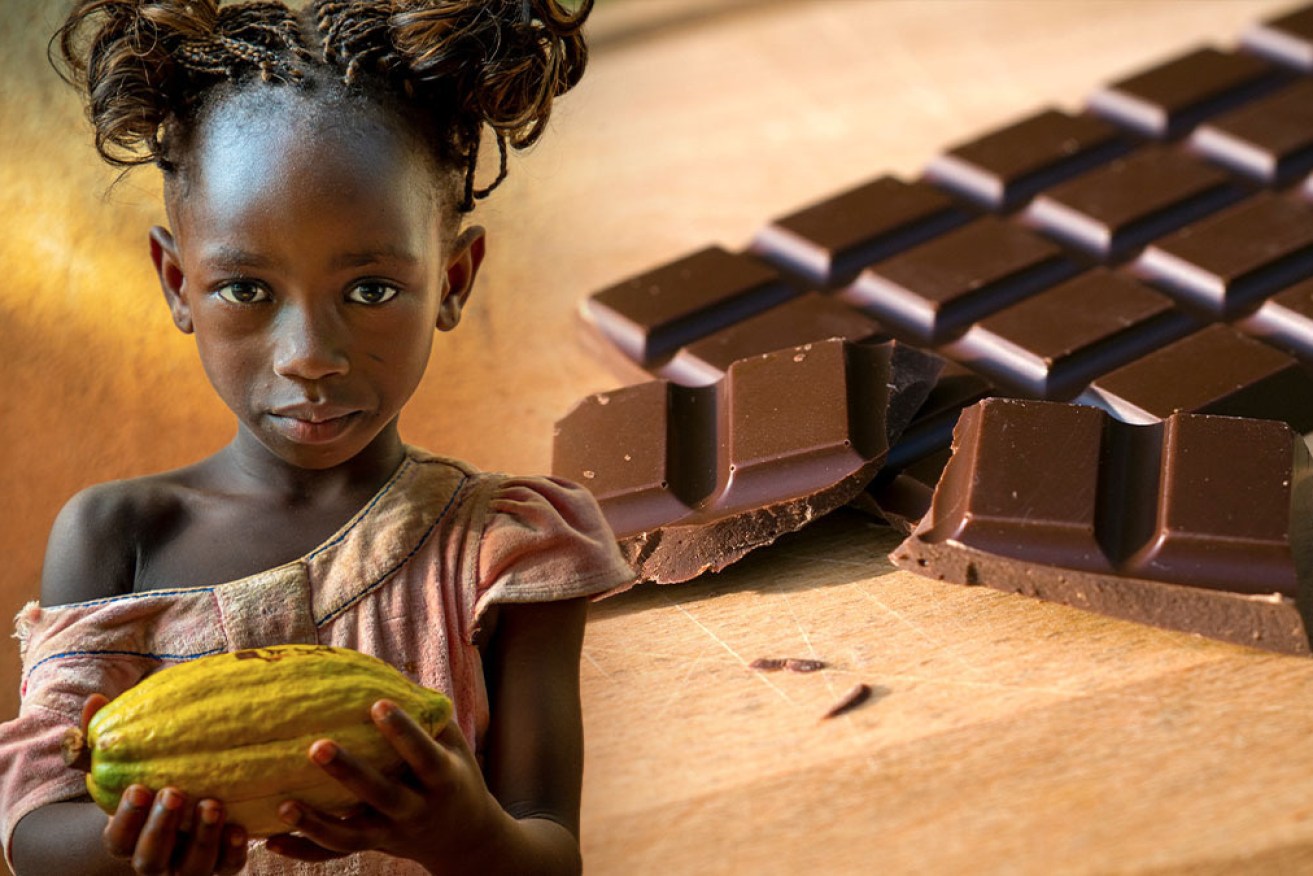Child slavery: Why your choice in chocolate could be harming children


Child labour is rife in Ivory Coast, where major chocolate brands source their cocoa from. Photo: TND/Getty
Just about every Australian will either give or receive chocolate in some form this year, but there’s a sour side to the simple, sweet gift.
A new report by Macquarie University has revealed major chocolate producers such as Nestle, Hershey, Mondelez (which owns Cadbury) and Mars are still sourcing cocoa from Ivory Coast, a small African country where child labour and slavery is rife.
This is despite the companies pledging to eradicate the “worst forms” of child labour in their supply chains nearly 20 years ago.

Chocolate sales typically skyrocket over the Christmas period. Photo: Getty
The report’s findings were so shocking that lead researcher Professor John Dumay said he has “gone off chocolate by the big companies altogether”.
“These children work long hours in dangerous environments, carrying heavy loads, exposed to agrochemicals (pesticides), clearing land and using sharp tools,” Professor Dumay said.
Instead of being at school, more than two million children under the age of 15 work in the cocoa industry in Ivory Coast and Ghana in west Africa, according to the report.
Many of them are children of farm labourers, while others are sold to farms as bonded labourers from Burkina Faso and Mali.

A young cocoa plantation worker in Guezon, Ivory Coast. Photo: Getty
One of the worst offenders is Swiss multinational Nestle, the largest food manufacturer in the world.
But the company is very good at hiding it, the researchers say.
“Nestle and the other industry players have not resolved the issue,” Professor Dumay said.
“They are overstating good news and understating bad news.”
After analysing all of Nestle’s corporate social responsibility reports over a 15-year period, the researchers found almost no mention of slavery despite clear ethical issues in its Ivory Coast cocoa supply chain.
The company did mention ‘forced child labour’, but did not say what it was doing to stop the widespread practice.
In response to the paper, Nestle said it was the first company in the cocoa and chocolate industry to introduce its comprehensive Child Labour Monitoring and Remediation System in 2012, and has identified 80,000 children at risk and helped half of them access education.
“Working together with our partners, suppliers and cocoa communities, and following a holistic approach, we truly believe we can make a difference for the cocoa farmers in our supply chain,” says Nestle Oceania head of corporate and external relations, Margaret Stuart.
The company reports annually about its progress in the Nestle in Society report and the Nestle Cocoa Plan website.
Meanwhile, Japanese company Meiji has pulled operations out of Ivory Coast over consumer pressure, while other countries, including Australia, produce cocoa without exploiting children.
For a list of Slave Free Chocolate’s ethical chocolate brands, click here.








